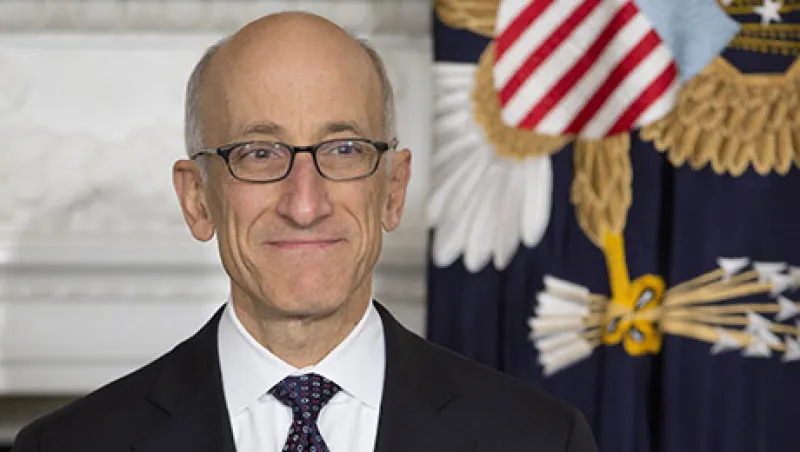
Timothy "Tim" Massad, assistant secretary of financial stability at the U.S. Treasury and U.S. President Barack Obama's nominee as chairman of the Commodity Futures Trading Commission (CFTC), listens as U.S. President Barack Obama, not pictured, speaks during a nomination announcement in the State Dining Room of the White House in Washington, D.C., U.S., on Tuesday, Nov. 12, 2013. Massad would take over an agency that has put into place more than 60 rules mandated by Dodd-Frank to help reduce risk and increase transparency in the swaps market after largely unregulated trades helped fuel the crisis. Photographer: Andrew Harrer/Bloomberg *** Local Caption *** Tim Massad
Andrew Harrer/Bloomberg


